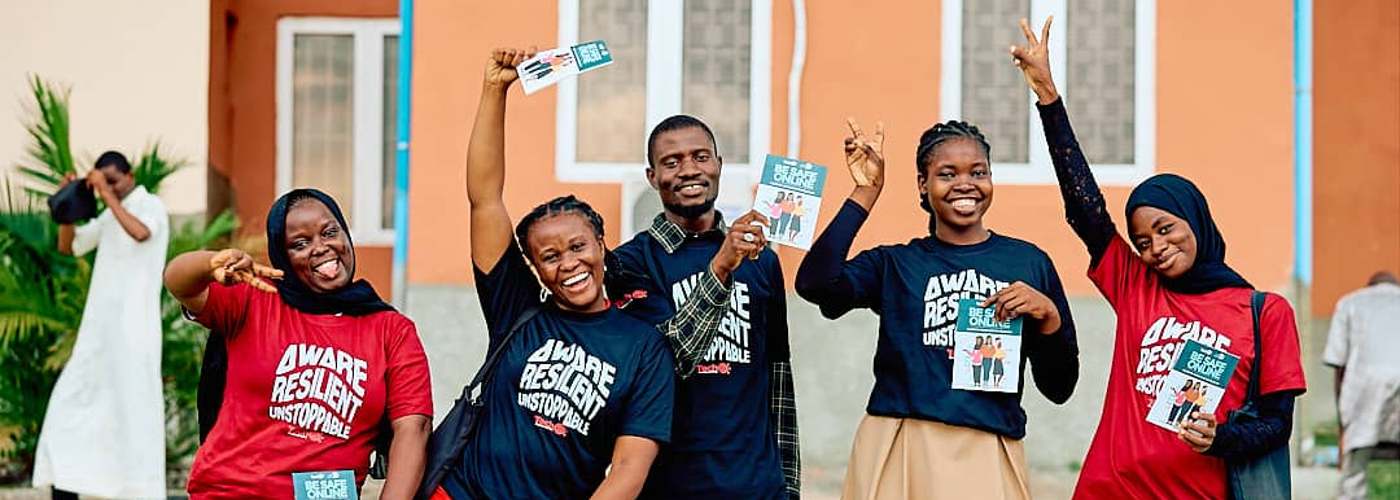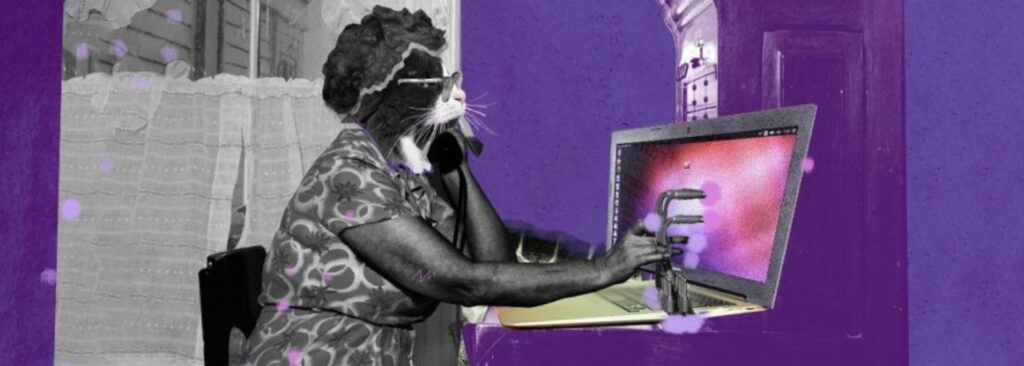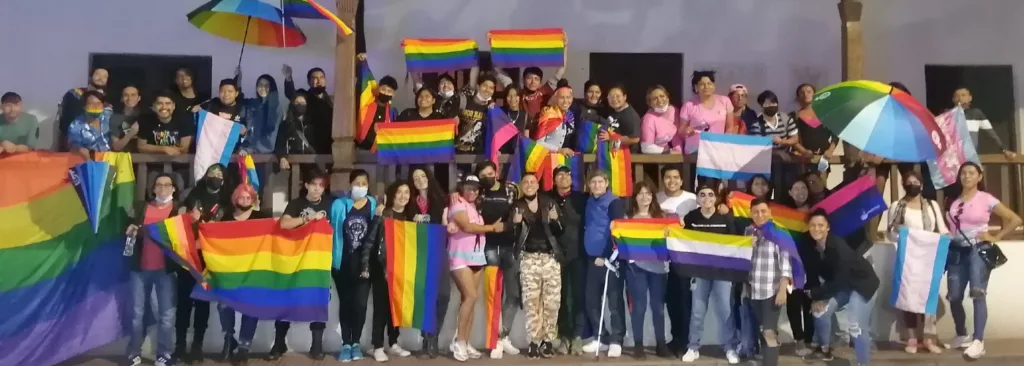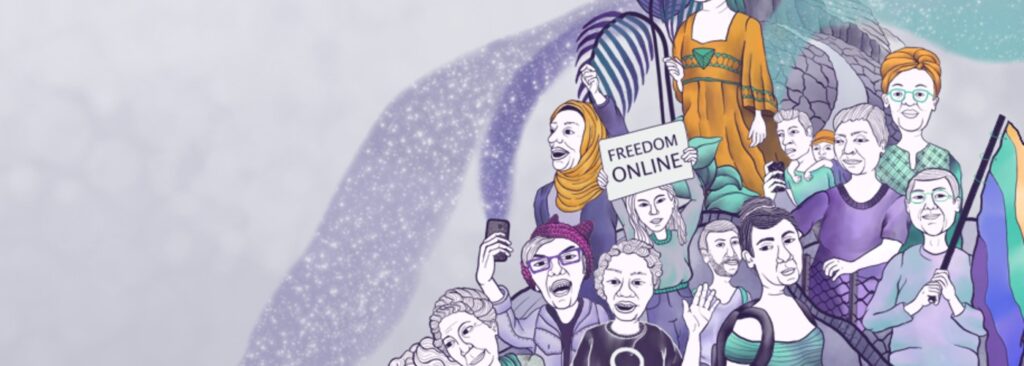The internet promised connection, empowerment, and opportunity. But for millions of women, it has also become a minefield where harassment, threats, and abuse lurk behind every screen. In Nigeria, where one of Africa’s largest youth populations is increasingly online, a darker side of the digital world is taking hold: online gender-based violence (OGBV).
Chioma Agwuegbo, founder of TechHER, knows this all too well. “Nigeria has a problem with violence against women, but online violence is even more complicated—it’s less tangible,” she says. TechHER began as a grassroots effort to connect women eager to learn tech skills, but it soon became clear that the internet also posed real dangers. Chioma and her team have been working ever since to turn the tide, fighting not just to empower women with tech, but to protect them from the growing threat of digital violence.
Chioma didn’t set out to start a social enterprise, but in 2015, she accidentally laid the foundation for TechHER. It all began with a simple idea: create a space where women could acquire digital skills in a supportive, judgment-free environment. When Chioma shared a Google form on Twitter calling for women interested in tech to connect, she received over 110 responses in just 24 hours. That unexpected surge of interest transformed a passion project into what would become TechHER, a social enterprise that today has grown into a multifaceted organization supporting women’s digital literacy and community building.
Understanding the depth of online gender-based violence in Nigeria
OGBV in Nigeria encompasses various forms of harm—including harassment, cyberstalking, non-consensual sharing of intimate images, and sextortion. This form of violence is both insidious and widespread, yet its very nature makes it difficult to combat.
What complicates things further is the lack of widespread awareness of what constitutes online violence. As Chioma notes, “People didn’t understand what violence looked like online. For many, digital spaces appear less threatening because there are no physical injuries. However, the emotional, reputational, and psychological toll can be devastating.” “In Nigeria, as well as other countries, the threat of violence is a violence itself,” Chioma adds, emphasizing that online harassment is often dismissed by authorities as out of their scope or abilities.
To combat this, TechHER partnered with Hivos in 2021 through the Digital Defenders Partnership (DDP) to research and document the various forms of OGBV in Nigeria. One of the primary issues they identified was sextortion, where victims are blackmailed with intimate images or videos, often under the threat of exposure, unless they comply with the demands—whether financial or sexual. “Sextortion is the most common theme in the type of offending,” Chioma says.
Keeping up with the evolving nature of digital violence
While TechHER has become a recognized force in advocating for safer digital spaces for women, tackling OGBV has been fraught with challenges. Legal frameworks in Nigeria have yet to fully catch up with the evolving nature of digital violence. When women try to report online abuse, they are often met with dismissive responses from law enforcement. “The police can say things that are unhelpful. Survivors are frequently told that they have no legal recourse, even though the violence they experience is real and damaging,” Chioma explains.
Chioma and her team are not only working to provide support for victims, but they are also advocating for reforms in how OGBV is handled by the justice system. “The prosecutorial procedure for reporting—bringing the agencies together so when cases get to court they can deliver justice,” she emphasizes, is a key part of their ongoing efforts. With help from DDP, TechHER is mapping out Nigeria’s legal landscape to identify which laws apply to OGBV and how they can be used to protect women and prosecute offenders. This is critical as the ways people use the internet for OGBV are continually evolving and changing faster than laws, policies, or enforcement agency procedures.
Addressing and overcoming cultural barriers
Another major barrier to fighting OGBV in Nigeria is the societal and cultural context. Nigeria’s deeply religious and conservative culture often makes discussions around topics like safe sexting—discussions that could protect women—feel taboo. “We wanted to run a campaign on how to safely take nudes in a way that you can have plausible deniability,” Chioma explains. However, the initiative met resistance, as many feared it would be seen as promoting immoral behavior. “What slowed us down a little bit is Nigeria is very religious, and we didn’t want to be seen as corrupting youth,” she says.
Despite these challenges, TechHER is determined to continue its advocacy, not just for digital literacy but for a safer, more equitable internet. The organization has expanded its initiatives and is now preparing to launch its second round of research, focusing specifically on online violence targeting the queer community.
Advocating for systemic changes
Chioma and her team are also laying the groundwork for systemic change. They aim to set up a volunteer lawyer network across Nigeria, ensuring that women in every state have access to legal support when they face online violence. Additionally, they are pushing for greater collaboration between government agencies and the justice system to ensure OGBV cases are taken seriously and perpetrators are held accountable.
At the heart of TechHER’s mission is the belief that the internet should be a safe space for everyone, particularly women. “It’s not your fault, and you’re not the only one,” Chioma often tells survivors. “There’s nothing special about you or that makes you particularly deserving of this violence—you’ve been targeted by a criminal.”
With each case TechHER handles, they’ not only support survivors but also drive much-needed conversations about the pervasive nature of OGBV and the urgent need for societal and legal change. In a world where the digital space holds both promise and peril, organizations like TechHER are vital in ensuring that women can navigate the online world with confidence, safety, and the knowledge that they are not alone.








